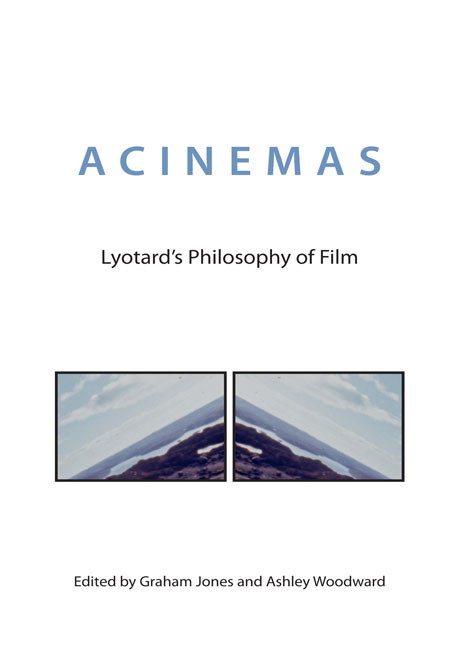Book contents
- Frontmatter
- Contents
- Acknowledgements
- Abbreviations
- Translators’ Note
- I Openings
- II Lyotard's Essays on Film
- III Approaches and Interpretations
- 8 Imaginary Constructs? A Libidinal Economy of the Cinematographic Medium
- 9 Lyotard and the Art of Seduction
- 10 Authorisation: Lyotard's Sovereign Image
- IV Applications and Extensions
- Appendices
- Notes on Contributors
- Index
10 - Authorisation: Lyotard's Sovereign Image
from III - Approaches and Interpretations
Published online by Cambridge University Press: 23 June 2018
- Frontmatter
- Contents
- Acknowledgements
- Abbreviations
- Translators’ Note
- I Openings
- II Lyotard's Essays on Film
- III Approaches and Interpretations
- 8 Imaginary Constructs? A Libidinal Economy of the Cinematographic Medium
- 9 Lyotard and the Art of Seduction
- 10 Authorisation: Lyotard's Sovereign Image
- IV Applications and Extensions
- Appendices
- Notes on Contributors
- Index
Summary
It may seem strange to begin a discussion of Lyotard and film with a reference to Lyotard and television. But if one were to attempt, as I would like to do here, to open up some of the ‘political’ stakes of Lyotard's interest in cinema, it may be worthwhile to do so. The text I have in mind is that curious little piece entitled ‘Tribune sans tribun’ in French and published in Political Writings under the title, ‘A Podium without a Podium: Television according to J.-F. Lyotard’. Though I have the greatest respect for Bill Readings and Kevin Paul Geiman and their work in translating this important collection of Lyotard's writings, I should point out that the title is perhaps a little more complex than their rendering might make it seem. Surely ‘tribune’ can be translated as podium; the word comes from the title of the television programme on which Lyotard appeared on 27 March 1978, Tribune Libre, a kind of ‘free platform’ or ‘open forum’ where intellectuals could appear – for fifteen minutes – to discuss events of the day or, I suppose, whatever else might be on their minds. (Tribune can also be translated as ‘opinion column’.) It's the second word, ‘tribun’, that's a little more tricky. It's clearly linked to the feminine noun ‘tribune’, but formulated as it is in the masculine it would appear to designate not a podium (or platform or forum, etc.) but a (male) ‘tribune’, that is, a kind of orator or even, in the archaic sense, a champion of the people. So while it doesn't retain the etymological link between the French words in the way that Readings and Geiman's translation does, another, perhaps more literal, rendering of the title of this little work might be something like ‘A Podium without a Speaker’.
And this would appear to be exactly what is in play here. The text is a transcription of the soundtrack of Lyotard's appearance on Tribune Libre, where he was invited to speak in the capacity of an ‘intellectual’.
- Type
- Chapter
- Information
- AcinemasLyotard's Philosophy of Film, pp. 102 - 116Publisher: Edinburgh University PressPrint publication year: 2017



